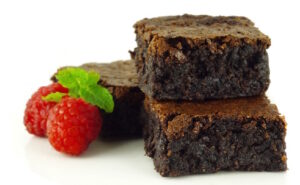The Ketogenic diet emphasizes eating foods that are high in protein and good fats, while eliminating carb-rich foods. This diet offers the amazing opportunity to heal diabetes with food.
One study found that while following the Ketogenic diet, 95.2% of Type II diabetics reduced or terminated their need for blood sugar medication within 6 months!
Americans have been brain-washed for decades into believing that fat is bad for our health. This was a ploy by the sugar industry to increase sales… and it worked. Unfortunately, our nation is now addicted to sugar and our healthcare system is overwhelmed by the results.
Research has found that fat is not the health threat it was touted to be, and that refined sugars and processed foods are the real enemies of health. Let's take a closer look at the way the foods we eat affect our bodies.
The body converts food into energy. High carbohydrate foods provide a spike of energy, but not long-term fuel. Those who follow a Ketogenic diet consume fat and protein instead of carbs, causing the body to burn more of its fat stores for fuel. This process causes blood sugar to lower naturally.
Diabetics can reap a huge benefit from this way of eating. Pause for a moment and consider; high carb foods are often high in refined sugars as well. As you reduce the amount of carbs you eat, you are reducing the amount of sugar you are taking in. This in turn lowers insulin and blood sugar levels.
The foods prohibited by the Keto diet include: bread, crackers, bagels, cookies, pastries, etc. Basically, foods made with white flour and sugar are off limits. Can't conquer your sugar cravings right away? These tips can help!
Processed foods found in boxes and plastic bags are out. Vegetables, meats, seafood, fats, and dairy are in. (When grocery shopping, stick to the perimeter of the store and avoid the aisles.) Check out an extensive list of Keto-approved foods here!
It is important to note that many high-carb foods are also high in empty calories. Calories are literally defined as the units of energy the body can use. For example, the calories in sugary breakfast cereals do nothing for the body except raise blood sugar.
Sure, foods like avocado and butter are high in calories, but the body actually utilizes those calories to benefit your overall health, not to mention your blood sugar. Don’t be afraid of calories, instead focus on choosing high quality, healing foods.
By doing this, you will likely experience some weight loss. Be sure to discuss how much weight you should or should not lose with your physician.
Also ask your physician if losing some weight would help you to prevent metabolic syndrome- the combination of excess body fat, high blood sugar, and high blood pressure. These symptoms could increase your risk of heart disease, stroke, and other potentially fatal complications.

Learn as much as you can about the diet and discuss it with your physician prior to beginning. This way, you are comfortable with the demands and limitations of the diet, and your physician is working with you the whole time.
Involve your family and friends in your journey to better health. You will need their support as you take on this new way of eating. Share your goals with them, and ask them to help keep you accountable to those goals.
Get connected to others in your local community, or join an online Keto community. Talking about your inspirations, your challenges, and your victories is an essential Keep yourself motivated by talking about your challenges and victories, swap recipes, and make new friends.
Focus on the benefits you are gaining such as lower blood sugar and better overall health. Do you have more energy? Are you sleeping better? Being mindful of the benefits you are enjoying will make you want to keep going.
If you do fall off the wagon, hop right back on. The day, the week (or the month) is not a total loos simply because you ate or drank something that isn’t Keto-friendly.
Lifestyle changes are hard to make and you will face obstacles. Focus on your health, and spend time with family and friends using up all of your newly-found energy. The Ketogenic diet may not be the solution for everyone, but the potential benefits are certainly worth a second look-and a conversation with your healthcare team.
Sources:
http://www.pharmacytimes.com/resource-centers/diabetes/ketogenic-diet-for-diabetes-recent-research-shows-good-results
https://ketodietapp.com/Blog/post/2015/01/03/Keto-Diet-Food-List-What-to-Eat-and-Avoid


[…] The Ketogenic diet in particular emphasizes high-fat and high-protein while reducing carbohydrates. This forces the body to burn fat instead of carbs, and results in lower blood sugar levels. Research studies have found that while following the Ketogenic diet, up to 95% of Type II diabetics reduced or terminated their need for blood sugar medication within 6 months. […]